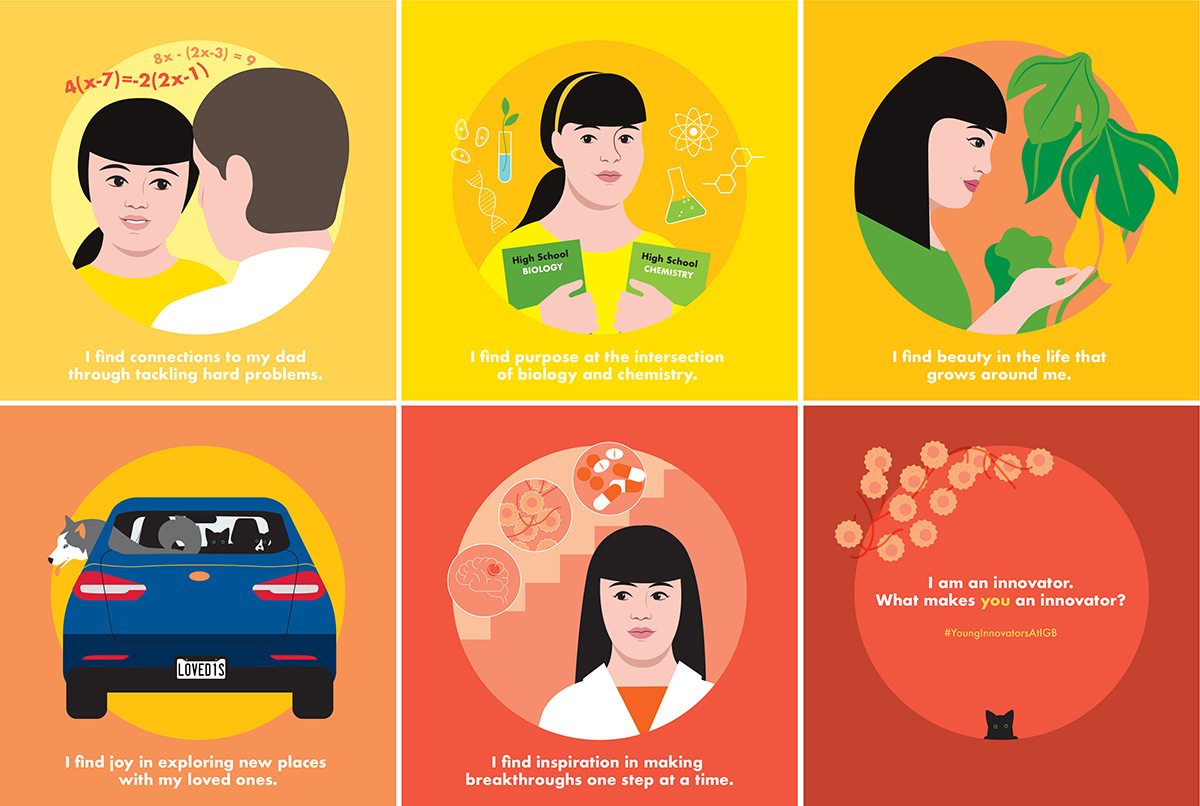Young Innovator Program Inventor Spotlight: Victoria Kriuchkovskaia

Victoria Kriuchkovskaia is a graduate student in the Harley lab at the Department of Chemical and Biomolecular Engineering. In the inaugural Young Innovator Program in 2021, she won third place for her proposal to develop a platform for screening glioblastoma drugs. Glioblastoma is a lethal brain tumor that is currently incurable due to its complex nature and challenging location.
What inspired you to become a scientist?
VK: My mom was a doctor and my dad was a mechanical engineer; I'm something in between. I was inspired by both of them when I was a kid. My mom was a hematologist and she would take me on tours to her lab at the hospital. It was always fascinating. When I was 17, my dad passed away from a severe brain disorder and that inspired me to do brain research.
When did you first realize that science is interesting?
VK: I used to think that science was hard and I didn’t understand it. Somewhere around high school, I realized that organic chemistry was cool and fascinating, especially when we started talking about biomolecules. There were so many pathways and there were a lot of complicated problems that I wanted to tackle.
What do you enjoy most about science?
VK: I like thinking about all the complicated problems. With biology we don't know anything and every day when I do experiments in lab, I'm just one little step closer to the answers. The impact of the work we do today might not be seen right now, but in 10 years, it will help solve problems like finding a cure for glioblastoma.
What are the biggest misconceptions about scientists?
VK: That we just sit in lab 24/7 and do experiments. In reality, it's a lot of planning, reading, and data analysis. People also don't necessarily think of bio scientists as entrepreneurs, but there's so much work we can do to provide products for the end user.
Do you see yourself as an innovator?
VK: Yes. It’s actually a recent realization because I always thought of myself as a scientist. I remember that as an undergrad, I always wanted be a professor and last year, after working at a pharmaceutical company, I started thinking that I can be scientist and also be innovative at the same time.
Why did you decide to apply to the Young Innovator Program?
VK: As someone who’s pursuing a PhD and wants to stay in academia, I think it's important to also think about the entrepreneurship side of things. When you do a PhD, sometimes it's really easy to stay inside the box and not think about how can your research can be applied to a real product. That's why I wanted to participate in the program: I wanted to learn how to connect my research to the end user.
What was your project about?
VK: I want to develop a platform for drug screening, specifically for glioblastoma therapeutics. It is related to the project that I am doing lab, which focuses on understanding glioblastoma progression. I thought that since I was already looking at how drugs work on glioblastoma, it would be a natural way for me to expand my project. The goal is to identify drug candidates so I can efficiently screen thousands of drugs on glioblastoma models and identify the ones that can be tested further in animal studies.
How has the Young Innovator Program’s funding helped you in the past year?
VK: Besides studying the effect of chemotherapeutics on glioblastoma cell lines, my project has expanded to include new research avenues. I now study the combined effect of multiple factors, such as vasculature and metabolic constraints, on drug response. Another part of my work includes studying sex as a biological variable in glioblastoma-drug interactions, since men and women have often drastically different responses to glioblastoma treatments.
What did you like most about the program?
VK: It was inspirational to see established people and learn from their career paths as well as all the fascinating projects they've worked on.
Do you have any advice for people who are interested in the program?
VK: Don't be afraid, don't hesitate, and apply. You need to think outside the box and be innovative. Doing a PhD is hard and we often focus too much on the little tasks. There are so many different ways by which we can expand our thesis project.
What are your interests outside the lab?
VK: I've recently moved into a house and now I do a lot of gardening and interior decorating. I recently picked my first zucchini and my first squash. I also like spending time with my pets. I have one dog, Izzy, and two cats named Luna and Finn. I enjoy cross-country road trips and I’m planning to take my dog with me.
